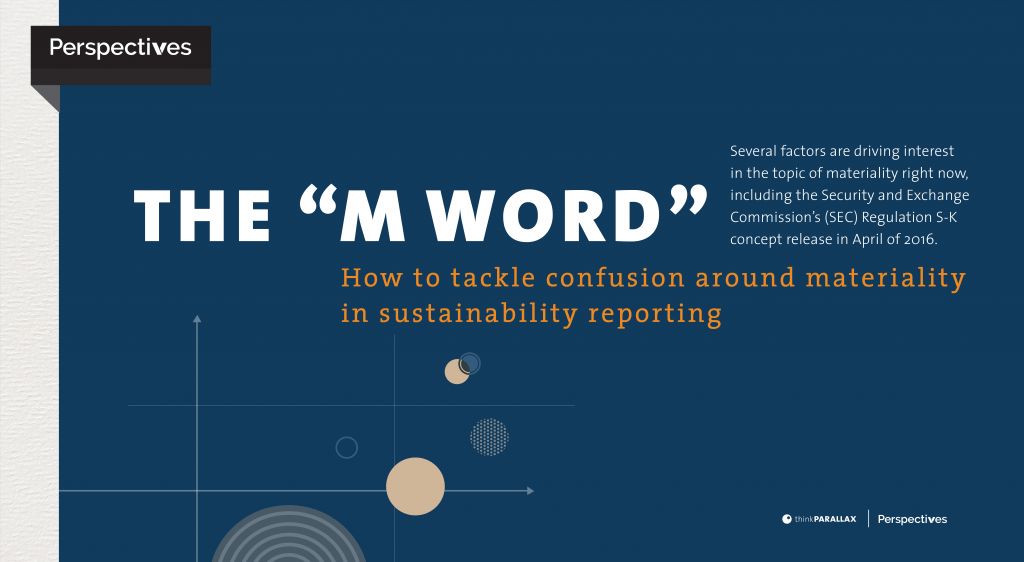
By Ann Tartre
Both the Security and Exchange Commission’s (SEC) Regulation S-K concept release in April of 2016 and the new GRI G4 guidelines that came into full effect in January 2016 are causing sustainability practitioners to take a long, hard look at the topic of materiality. And as the landscape surrounding the subject changes, many organizations have become unsure about how to address the issue.
The SEC’s current definition of materiality differs greatly from broader definitions of materiality according to reporting frameworks like the GRI. Corporate legal departments and risk management staff fear that disclosing non-financial sustainability risks such as resource scarcity or impacts from climate change in CSR reports could be misinterpreted by activist investors, open a company up to lawsuits, and potentially affect stock prices.
Meanwhile, the Sustainability Accounting Standards Board (SASB) insists that companies are taking risks by using different definitions of materiality or assuming they can’t be liable for voluntary disclosure of sustainability information not required by the SEC. SASB recommends using “material” only when describing sustainability information that meets the securities law definition, and claims that its framework helps companies to do so.
Confusion and concern about materiality is legitimate, but it does not have to be paralyzing. In this issue of Perspectives, you’ll learn how different factors are fueling the debate around the word “materiality,” and see how a few leading companies are addressing the issue in their CSR reports. We’ve also identified some questions to consider that can help refine your organization’s approach and four tactics for helping your team develop its strategy.
To read the full examination of the subject of materiality, download the report here.
Ann Tartre is a Sustainability Strategist at thinkPARALLAX – a strategic creative communications agency with a passion for building brands with purpose. Ann works at the intersection of business strategy, sustainability, and communications, helping organization cultivate knowledge, spread awareness, and create purposeful connections with audiences.
TriplePundit has published articles from over 1000 contributors. If you'd like to be a guest author, please get in touch!














